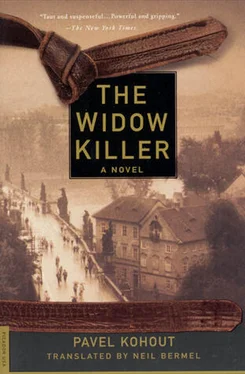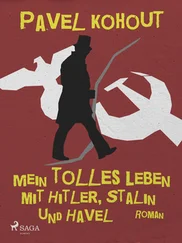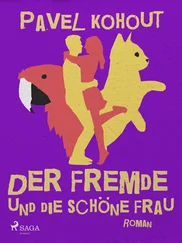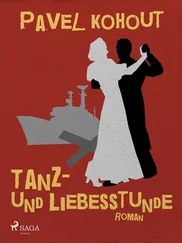Grabbing hold of each other to avoid falling over on the curves, the prisoners careened along the slippery pavement toward an unknown goal that could not possibly be Bredovská. Buback realized despondently that this was precisely how all Europe had come to know his people in the last five and a half years: as armed robots choosing victims at random, imposing their divine will on nations they judged less worthy. Anywhere else in the world, Buback’s job would have been a perfectly respectable one, but here he belonged to these robots, was one of them, and bore full responsibility with them for each and every one of their deeds.
He had spent the whole war tracking cheats, criminals, and other wrongdoers in the Germans’ own ranks. The front he knew only from rumors; as soon as they burned their evidence, they moved him one country further. Was that why he had been so sure his hands were clean? Blaming the German catastrophe on these blank-eyed savages, who had seen too little good or too much evil in their lives, was like blaming the hands of a clock for the time it shows. He, however, had been part of the mechanism — at first enthusiastically, later less so, but nonetheless an obedient cog in the workings of the Führer and Reich clockmaker.
Oh, Hilde, why didn’t you argue with me years sooner?
Oh, Buback, maybe in your blindness you’d have left her….
Oh Grete, if only late repentance could restore us to grace!
But who now would bestow it on the Germans? Even at this late hour, when all their lies were revealed and the Reich had reached the end of the line, they were loading inhabitants of a foreign city onto a truck like cattle destined for slaughter. What would come next? The only thing that made sense was to exchange them for Germans fallen into Czech hands. If that happened, he would offer to mediate under the condition that the SS finally start to behave in a civilized manner.
The truck stopped and the escort began to shove them out of the back. Anyone who misjudged the height or lacked agility landed on all fours. One older man could not stand and keened in pain; he had taken a bad blow to the knee. Buback looked around for the commander — now would be the time to step out of anonymity — but saw no officers in the circle around them. Two of the Czechs were already picking up the moaning man, their hands locked to form a seat beneath him, and carried him off after the others to a hall Buback knew well.
It belonged to the terminus railway station. International runs had never stopped here, only trains bound for the smaller Czech towns. In earlier days, it was the departure point for Prague children during the summer holidays. Despite the circumstances a memory of his mother caressed him: She pressed his teary face against her fragrant blouse and promised him that in seven days she and Daddy would come to visit. And he could even taste the mandarin oranges they always gave him for train trips to ward off thirst; oh, where are the snows of yesteryear?
The vast turn-of-the-century hall bore traces of recent fighting and swarmed with uniforms, overwhelmingly black in color. They pulled the prisoners at a swift pace to the front of the first platform. Strangely enough, there were no trains around, not even outside the hall where the tracks fanned out. And then, from out on the rails, a noise rang out like the cracking of an enormous whip. He realized what it was when they pushed the Czechs into long rows and began to count them off: one, two, three, four, five. Every fifth one was forced to jump down from the platform onto the rails; the four before him were herded between rows of guards into the parcel post storerooms.
As he waited among the last for them to get to him, a new salvo crackled from up front and he made a firm decision. It was barbarous of his countrymen to execute people this way when peace was just around the corner. As a German, he could only compensate for it by putting his own life on the line. If he were fifth, he would not speak up! To escape by condemning another man to death was beyond the bounds of humanity; he would cease to be himself.
If the worst happened, he would be sending his love to her fate as well, and would die with her in his thoughts.
All the Czechs knew what was happening — he could read it in their faces — but no one gave the slightest sign of despair. They all seemed to understand that their personal honor was the only thing they had left, and all their efforts were focused on preserving it. The foursomes not selected suppressed their relief, the fifth ones concealed their deathly fear. Buback had always found Czechs to be too cunning, too evasive, too openly selfish for his taste, but in this fateful test that arbitrarily consigned them to life or death, they seemed to him almost noble.
The Nazis were shifting the man with a wounded leg down to the tracks; a bullet would now end his pain. When the Germans reached Buback, he straightened up like the rest and stared them in the face. He saw nothing there but the effort to keep correct count. O German justice, point at me! He was fourth.
As they tried to drive him down to the storerooms, he finally reached down to his right sock and addressed his SS guard so imperiously that the man did not even check his documents, but hurried with him, as directed, out to the track branching. The guard obediently broke into a trot when Buback pressed him to overtake the condemned men from his own group.
From the end of the platform he could see the carnage. They were shooting the Czechs in front of the engine-shed wall, placing each new row a body’s length in front of the one before. The dead formed an extensive, multicolored field in which red predominated. As another platoon of executioners stepped forward, the gunners just relieved all lit their cigarettes at once. Behind them, another dozen victims were arriving, among them men from Buback’s truck.
The closest officer was a sergeant who seemed to be directing the executions. Buback pressed his document into the man’s hand and quite exceptionally made use of his borrowed military rank.
“Sturmbannfuhrer Buback, Prague Gestapo! What is going on here?”
The man turned his equine face toward him. Despite its expressiveness, two empty eyes once again stared out from beneath the helmet. After a brief pause he simply greeted Buback.
“The executions are to warn bandits.”
“These are random pedestrians! I know because I was detained along with them. Stop this immediately; I will bring this case to the attention of Lieutenant General Meckerle!”
“You won’t have far to go,” the man said, pointing at a group of officers in conversation, protected from the rain by the switch tower’s awning. “He’s over there.”
The giant had already spotted him and was striding over.
We’re almost there, beloved, his mother said; she was sitting in the driver’s seat because when he had begun to choke, his father was at the castle (they’d fired up the furnace there to shoe the lord’s horses, so they would not have to brave the snowdrifts), but his mother knew how to hitch the sleigh and the horse ran just as well for her as for Papa — breathe through your nose, beloved, she called out, worried, over her shoulder to where she’d balled him into a thick blanket.. that word, Jitka was the only person to call me beloved, he thought, bewildered despite the burning pain in his forehead; why should my head hurt when it’s my tonsils…. now she turned to him from the driver’s seat, and it was Jitka, but he was already deep in his fever.
Then the sleigh stopped and he knew in a moment the kindly face of Doctor Bab  rek would appear over him. So he opened his eyes and saw Litera.
rek would appear over him. So he opened his eyes and saw Litera.
Читать дальше

 rek would appear over him. So he opened his eyes and saw Litera.
rek would appear over him. So he opened his eyes and saw Litera.










